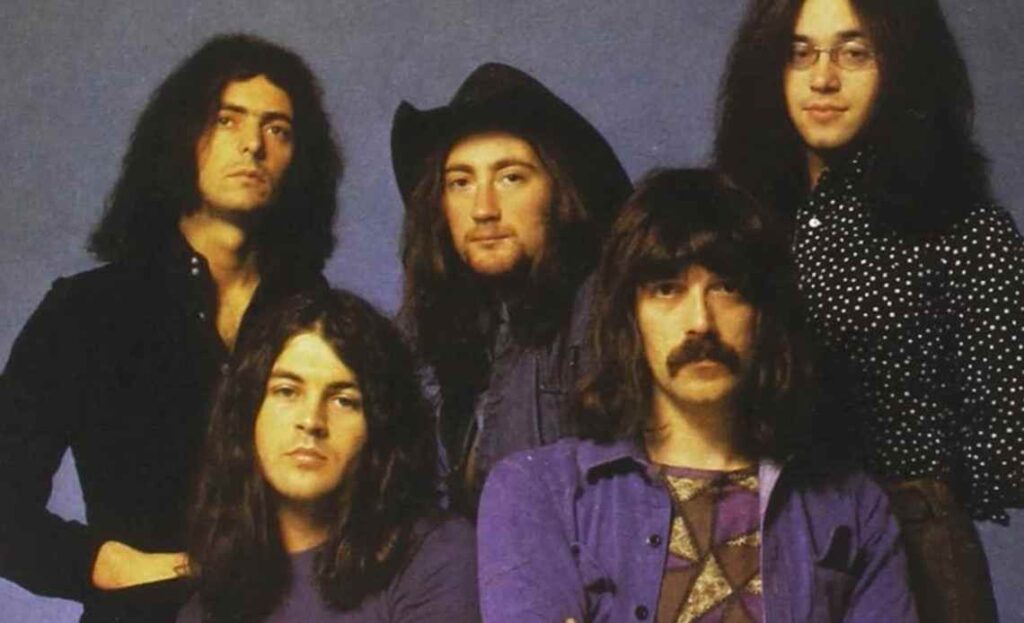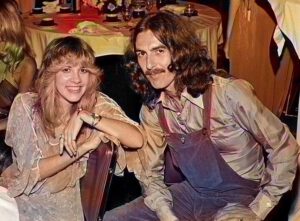
Guinness record set : Smoke on the Water famous guitar riffs in the history of music, whose…..
Smoke on the Water” may benefit from featuring one of the most famous guitar riffs in the history of music, whose popularity even Ludwig van Beethoven might have envied. But the song is also a piece of mysterious storytelling.
No, it is not as I imagined as a kid, describing some kind of naval battle in which the British fleet came on top. The real story is rather more interesting, in fact. This is why today, I’m turning my attention to one of the holy cows of classic rock and discussing the meaning of Deep Purple’s “Smoke on the Water.”
Deep Purple’s Journey to Making “Smoke on the Water”
Deep Purple’s Ian Lord used to say that on a fine day when little had gone wrong and when conflicts were few, this five-piece was nearly unrivalled in the pantheon of hard rock.
Such days were, however, few. Lord, of course, was referring to Deep Purple Mk. II. This was and is the most famous iteration of the group. With fights, in fact, quite frequent and plenty of employment opportunities elsewhere, the group went on to have numerous lineup changes. The latest is still rocking and playing “Smoke on the Water” today.
Furthermore, it hadn’t been a smooth ride. Led Zeppelin and Black Sabbath, the other components of the Trinity of Hard Rock, achieved nearly instant success. That wasn’t the story of Deep Purple.
The group was formed in 1968. Early Deep Purple tried its hands at pop, proto progressive-rock and the blues. The success of Zeppelin and Sabbath meant that there was a new game in town, soon to be christened hard rock.
With the albums “Deep Purple In Rock” and “Fireball,” Deep Purple Mk. II set out on the lucrative hard-rock route and discovered they could do it better than most. At the heart of this success was, without a doubt, the band’s line-up.
Guitarist and keyboardists Ritchie Blackmore and Jon Lord were musical virtuosos. The rhythm section of Ian Paice and Roger Glover could rumble with the best of them. And, in singer Ian Gillan, the band had the prototypical heavy-metal singer – someone who could scream out notes that would induce panic attacks in nearby canines.
Deep Purple had achieved success, finally, before releasing the album “Machine Head.” The band had carefully manipulated the public so as to be viewed as the loudest and flashiest hard-rock band on the scene. All they needed was an anthem.
The Meaning of the Lyrics to “Smoke on the Water”
Smoke on the Water” sounds much more mysterious upon first hearing it than once you really read the lyrics. The song is, indeed, about a fire on the water and about a show involving proggy comedic heroes Frank Zappa & The Mothers of Invention.
However, the guitar riff is so powerful, the band plays with military precision and Gillan sings as if taking a shot at a Richard Wagner piece that it makes “Smoke on the Water” sound like the chronicle of a tremendous battle.
In reality, the lyrics to “Smoke on the Water” tell the real-life story of a disastrous fire that overcame the Montreux Casino in Switzerland on December 4, 1971.
Deep Purple was about to start recording using The Rolling Stones’ famous mobile studio there. The recording was about to commence right after the concert by Frank Zappa and The Mothers of Invention.
Unfortunately, someone did fire a flare gun into the ceiling, which caused the entire building to catch fire. Ian Gillan was in attendance. Fortunate to have not been injured, or anybody else for that matter, the singer packed the event in his memory and decided to write lyrics about it.
Real Characters, Real Story
Frank Zappa lost much of his musical equipment in the fire. Things only got worse weeks later when the band leader broke his leg during a performance. That prompted Gillan to jokingly say “Break a leg, Frank Zappa” during a later live recording of “Smoke on the Water.”
“Funky Claude” mentioned in the lyrics is Claude Nobs, the man who helped the band members to safety. He also, later, helped the band members locate another hotel in which to stay.
The fire lasted for several more hours before it could be put out. By that point, a heavy fog of smoke had covered Lage Geneva. Bassist Roger Glover suggested a title to the song Gillan had promised to write – “Smoke on the Water.”
Disturbed but unwilling to give up, the band changed locations, moving into the Grand Hotel in Montreaux. For the rest of December, they worked on the songs that would become “Machine Head.”The lyric “Swiss time was running out” refers to how the group’s visas were due to expire. This made them aware that they needed to use their time in Switzerland wisely.
In a separate album ranking Deep Purple’s albums, I have rated “Machine Head” as the band’s second greatest album. While it contains many great songs, none is as iconic as “Smoke on the Water.”






